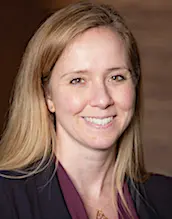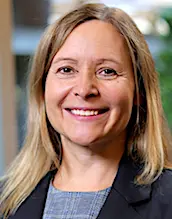Register for CAPLA’s Fall RPL event
There has been a lot of buzz over the last couple of years about microcredentials in both the post-secondary education and career development sectors. Rarely however, have the ways in which they fit into an RPL, portfolio or transfer credit process been highlighted. And so, CAPLA is pleased to announce that its fall 2023 professional development webinars will take a look at microcredentials and RPL. The webinars consist of 1 hour of presentations and then break-out rooms to dive deeper into the subject matter with presenters.
Webinar 1 focuses on MC frameworks, quality assurance and RPL.
Webinar 2 focuses on developing MCs for specific audiences/RPL.
Webinar 3 focuses on using MCs as pathways for recognition of learning.
As in other years, you can register for one session or all three. And since all our sessions are on Zoom, video recordings can be sent to you if one of the dates becomes problematic.
Webinar 1
MC Frameworks, Quality Assurance and RPL
Wednesday, November 1, 2023 12.00 noon – 1.30pm (Eastern)
The first webinar in the series will explore the development of MC frameworks from an institutional and provincial perspective.
1. New Brunswick Community College’s (NBCC) Microcredential Framework
Presenters: Michelle Chisholm and Gail McLaughlin-Aube, New Brunswick Community College
Michelle Chisholm and Gail McLaughlin-Aube will introduce New Brunswick Community College’s (NBCC) Microcredential Framework. Although the NBCC MC framework is still in progress and not yet approved internally, they will be able to speak to where they are in the process, challenges they faced, research they completed, and where they want to go next, including PLAR/RPL opportunities for microcredentials, which is exciting.
2. Nova Scotia’s Microcredential Framework
Presenter: Dr. Shawn Jolemore, Project Director for the NS Microcredential Framework
During this presentation Dr. Shawn Jolemore will provide a brief overview of how the new NS Microcredential Framework was developed, its content, and plans for the path ahead. It will also focus on where RPL fits into the framework, and discuss some of the challenges and best practices that can arise when creating a comprehensive framework such as this one.
3. BC Micro-credentials and PLAR: The Inside Scoop
Presenter: Dr. Annie Prud’homme-Généreux (she/her)
After Ontario, BC is probably the province that has most embraced micro-credentials. To ensure consistency across institutions in the province, in 2021 the BC Ministry of Post-Secondary Education and Future Skills published a provincial micro-credential framework. This was followed, in the fall 2023, with a micro-credential toolkit to help practitioners implement these programs. In total, the province has supported the development of more than new 200 micro-credentials. Of notable interest to CAPLA, the province is sponsoring a workgroup with representatives from five universities to design and pilot a province-wide system of recognition and transfer of micro-credentials, led by your very own Susan Forseille. Come learn about recent micro-credentials developments in BC, with a focus on the links between PLAR and micro-credentials.
About the speakers

Michelle Chisholm
Learning Design Consultant for Prior Learning
New Brunswick Community College
Michelle’s role at NBCC is to provide learning design for special offerings at the college such as Prior Learning Assessment and Recognition (PLAR) and microcredentials.
Read more

Gail McLaughlin-Aube
Business Development Manager – Special Projects
New Brunswick Community College
Gail’s role at NBCC is to manage the development and launch of special projects for the School of Professional and Part-time Learning, currently focusing on microcredentials.
Read more

Dr. Shawn Jolemore
Project Director
The Nova Scotia Microcredential Framework
Dr. Shawn Jolemore joined the provincial microcredentials project in 2021, following a 15-year career in the Nova Scotia Health Authority where he held various education management and organizational development consulting roles. Together with leaders from industry sector councils, postsecondary institutions, and government, Shawn helped guide the development of this complex project within an emerging landscape.

Dr. Annie Prud’homme-Généreux
B.C. Micro-credential Toolkit consultation and adaptation lead
Dr. Annie Prud’homme-Généreux (she/her) led the consultation and adaptation of the B.C. Micro-credential Toolkit under the advice and direction of the BCcampus Competency Working Group.
Read more
Webinar 2
Developing MCs for specific audiences/RPL
Wednesday, November 8, 2023 12.00 noon – 1.30pm (Eastern)
The second webinar in the series will examine how MCs can serve the needs of a variety of groups, such as employers, employees, learners, and job seekers, etc.
1. Micro-credentials at Humber College: Planning with the end goal in mind
Presenter: Alena Shah, EdD, Humber College
This brief presentation will provide an overview of how Humber College has intentionally developed an internal micro-credential framework to ensure alignment with target audiences. First, the presentation will outline Humber’s micro-credential definition, highlighting key terminology tailored to be responsive to various learners. We will then explore the key design principles that are promoted when creating a micro-credential that assists with facilitating RPL. Lastly, we will explore potential uses for micro-credentials for creating learner mobility.
2. Breaking Barriers with the IT Apprenticeship for Indigenous Peoples Digital Credential
Presenter: Val Thomas, Employment and Social Development Canada
Discover how the Government of Canada is advancing reconciliation with its innovative IT Apprenticeship Program, for First Nations, Inuit, and Métis peoples. This ground-breaking initiative removes traditional barriers to employment by recognizing passion and potential, and lived experience rather than formal education. Join us to learn about the innovative digital credential strategy and how it is unlocking career growth and mobility for Indigenous talent in the government of Canada and beyond. See first hand, how this initiative is transforming the federal workforce and contributing to a more equitable digital future.
3. Finding recognition in micro-credentials
Presenter: Don Presant, President, Learning Agents
Micro-credentials and digital badges have huge potential for authentic recognition and for connecting learners to new opportunities in a rapidly changing world, but much of that potential remains untapped. Many technology limitations are being addressed, but underlying issues related to culture and change management are still largely unaddressed, such as lack of awareness, problematic preconceptions, traditional habits and organizational silos. Micro-credentials are often described as digital training certificates and “diploma building blocks”, but they can do SO MUCH MORE to help fulfill CAPLA’s mission of “removing barriers to recognition, regardless of the end uses of the recognition process.”
Join Don Presant, international consultant for badges and micro-credentials and longtime CAPLA member, for a wide-ranging critique of recognition in micro-credentials today, along with some glimpses of what’s possible and what’s even starting to happen – across Canada and in global practice.
About the speakers

Alena Shah, EdD
Associate Dean, Program Planning
Program Planning, Development & Renewal
Humber College
Alena Shah is the Associate Dean, Program Planning in Humber College’s Program Planning Renewal and Development (PPDR) Office.
Read more

Val Thomas
IT Apprenticeship Program for Indigenous Peoples Lead
Employment and Social Development Canada
Val Thomas is a sought-after thought leader and advocate of skills-based hiring and digital credentials. She’s been leading innovative talent recognition initiatives within the Government of Canada for over 10 years.
Read more

Don Presant
President
Learning Agents
Don Presant is one of Canada’s top experts in the field of micro-credentials and digital badges.
Read more
Webinar 3
Using MCs as Pathways for Recognition of Learning
Wednesday, November 15, 2023 12.00 noon – 1.30pm (Eastern)
The third webinar in the series will explore how MCs can support equity and recognize the experiences and learning of marginalized groups.
1. Opening Up Workforce Recognition in International Development
Presenter: Stella Porto, IDB Credentials and INDESVirtual
We will explore the initiatives of the Inter-American Development Bank (IDB) in utilizing open badges to promote workforce development within an international development context. Over recent years, the IDB has pioneered a transformative approach toward recognizing and validating the skills and competencies of its workforce, alongside hundreds of thousands of professionals across Latin America and the Caribbean (LAC).
By adopting the principles of Open Recognition, the bank has successfully cultivated a culture of continuous learning and professional growth, further advancing its strategic objectives within the LAC region. We will navigate through key projects to demonstrate how the IDB has meticulously designed, implemented, and expanded our badge system to address skill gaps, support reskilling and upskilling, improve employability, and encourage a culture of open recognition. The session will share insightful lessons learned, challenges faced, and effective strategies employed by the IDB to navigate these challenges.
2. BC Credit Bank Initiative
Presenter: Susan Forseille, Director, PLAR Thompson Rivers University, Open Learning
BC Centre for Open Learning
Thompson Rivers University’s Prior Learning Assessment and Recognition (PLAR) team received funding in 2023, from the BC Ministry of Post-Secondary Education and Future Skills for a pioneering pilot project to increase pathways for recognition of learning. The project used PLAR/RPL assessment methods to assess micro-credentials in BC’s public post-secondary institutions for credit. Susan will share an overview of this project, including how it led to negotiations for a provincial credit bank.
3. Credential As You Go: Lessons Learned, Evolving Trends
Presenter: Nan L. Travers, Ph.D., Director Center for Leadership in Credentialing Learning (CL2) SUNY Empire State University
Credential As You Go is a movement engaged in researching and facilitating the development of a nationally adopted incremental credentialing ecosystem that improves education and employment outcomes for all learners. Such a system requires that learning inherent in degrees and other credentials be unbundled into recognizable, incremental units that are usable for furthering education and employment. Incremental credentials, include all types of formally recognized credentials (e.g., badges, microcredentials, certificates, degrees) that an individual is awarded across a lifetime to document knowledge and skills. The Incremental Credentialing Framework captures six approaches to developing and implementing incremental credentials with prior learning assessment at its center.
Through a partnership with the Center for Leadership in Credentialing Learning at SUNY Empire State University; the Program on Skills, Credentials & Workforce Policy at George Washington University; and Corporation for a Skilled Workforce, Credential As You Go is currently working across 22 states, including 54 network members (8 higher education systems, 44 institutions, and 2 credentialing organizations). Data are being collected through formal focus groups, surveys of other key initiatives, informal meetings with members, and learner outcomes measures. Results so far are provided though reports and research briefs, which explore areas such as external and internal constraints and supports for implementing incremental credentials, credentialing patterns, mapping of related initiatives, and initial outcomes analyses. This presentation will share a quick update on the progress of these efforts and provide current data results, lessons learned, issues raised, and trends in credentialing, including how prior learning is being used in credentialing pathways.
About the speakers

Dr. Stella Porto
Head of CredencialesBID (IDB Credentials) and INDESVirtual
Stella Porto is a Learning and Knowledge Management Sr. specialist at the Inter-American Development Bank (IDB) in Washington, DC.
Read more

Susan Forseille
Director, PLAR
Thompson Rivers University, Open Learning BC Centre for Open Learning
I have been privileged to work for 23-years at the intersections of prior learning, education, and career development. I have had the privilege of working as the Director of PLAR (prior learning assessment and recognition) at Thompson Rivers University, Canada since 2018.
Read more

Nan L. Travers, Ph.D.
Director Center for Leadership in Credentialing Learning (CL2)
SUNY Empire State University
Dr. Nan Travers, Director, Center for Leadership in Credentialing Learning at SUNY Empire State University, focuses on research, policies and practices of the recognition, validation, and credentialing of learning.
Read more

